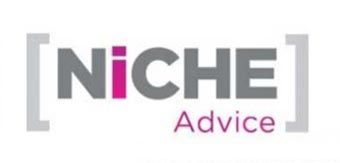We can help you buy rour Home with a Council Right to Buy Mortgage
Since the pandemic Right-to-Buy mortgages have been scarce for customers with requirements outside of “Mainstream” Mortgage Lenders. Recent self-employed and Right-to-Buy applicants with a poor credit history were either excluded or push into very high mortgage interest rates.
In the last couple of months green shoots have started to push through with two major “Specialist” Mortgages Lenders entered the Right-to-Buy market and the added competition is driving prices down.
This good news for the Right-to-Buy Mortgage Sector has prompted us to update our Frequently Asked Questions Right-to Buy Section.
Frequently Asked Questions: Council Right to Buy Mortgag Solutions
A) No you could have owned a property in the past. The Right-to-Buy itself is limited to tenants who have been public sector tenants for at least 3 to 5 years.
A) Virtually all Right-to-Buy Mortgage Lenders insist on the applicants matching the names on the RTB papers. There are exceptions but all applicants must live and intend to live in the property, and it must be a house rather than a flat.
A) No you can be on a Visa or uner EU pre-settled status depending on the mortgage lender. However, from our experience Local Authorities themselves only offer RTBs where at least one applicant has permanent rights to remain.
A) Possibly, the size and dates have a direct bearing. As a rule of thumb to get a mainstream mortgage rate the CCJ must be under £500 and satisfied for a year. Outside of this then you are looking at specialist lenders. You should talk this through with your Mortgage Adviser.
A) See CCJ response above. Defaults can be valued more favourably but are broadly treated the same.
A) Firstly, if the arrears are in the last couple of years you need to think carefully about exercising your Right-to-Buy. Mortgage payments can be higher than the council rents and the Local Authorities are more lenient on poor payment whereas Mortgage Lenders typically look to repossess on or around 6 missed payments and you would lose your home.
In direct answer to the question normally the account would need to be up to date with the missed payments being 12 months ago.
Rental payments do not appear on credit reports so you should check your annual rent statement.
A) Yes, but you will need to have traded for at least a year.
A) Most Right-to-Buy Mortgage Lenders will treat you as self-employed and work from your accounts or tax returns. There are a smaller group of lenders that base affordability on the last 12 months payslips.
A) Yes, some lenders take all the earnings and others half. The job will normally need to have a 3 to 6 month track record but some lenders insist in longer.
A) Most lenders look for a 12 month record if the contract is zero hours. There are Specialist Mortgage Lenders that may consider a shorter period. If the money is cash in hand then you normally need this to be deposited straight into the bank when paid.
A) Generally anything over 5 storeys or with deck balcony access is a challenge. There is a general feeling that Mortgage Lenders look for at least 50% of the block to he privately owned already. However, practicality this can be hard for the Surveyor to determine so they are more likely to reference sales in the block in the last six months on Rightmove or Zoopla. Cladding would also require a favourable EW1S assessment. In cases such as these you should speak to an experienced Right-to-Buy Mortgage Professional, such as Niche Advice.
A) Yes but only for the Mortgage Lender’s product fee addition to the mortgage and home improvements. By “exception” for legal fees (not Stamp Duty). Mainstream lenders are more accommodating.
A) Yes, there are few provided you do not need your Mother’s income to support the case.
A) Yes, there are few Mortgage Lenders that will allow 4 applicants however some only use the highest two earners in terms of affordability.
Free, No-Obligation Quote today!
By completing this form you are allowing us to respond to the query by phone, email SMS and our messaging software.




